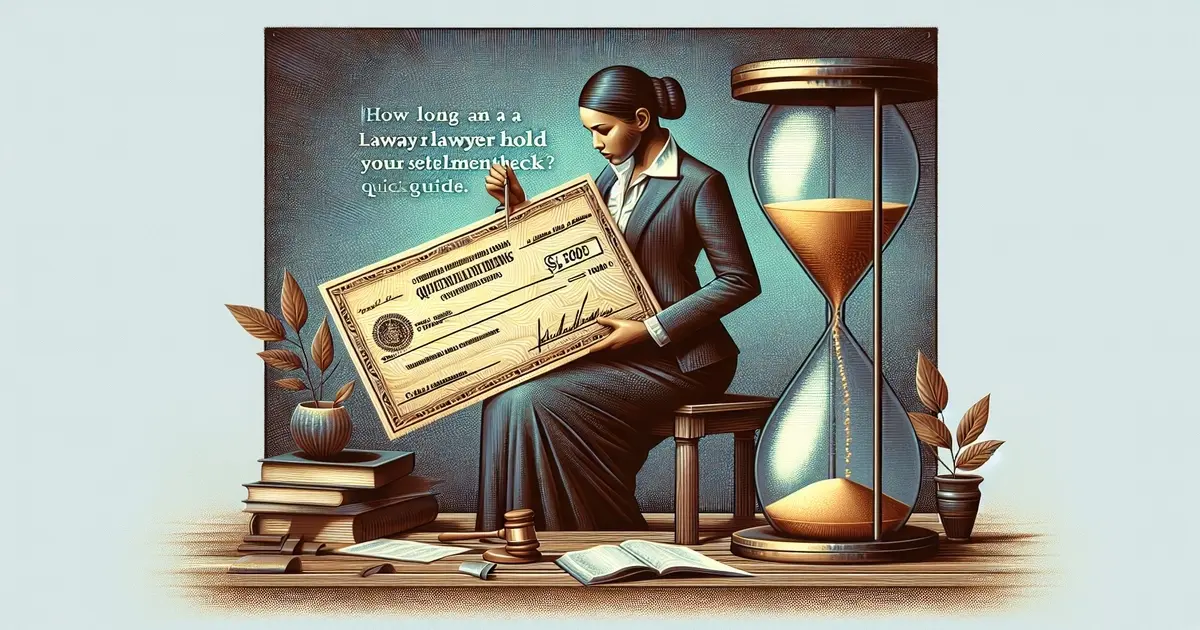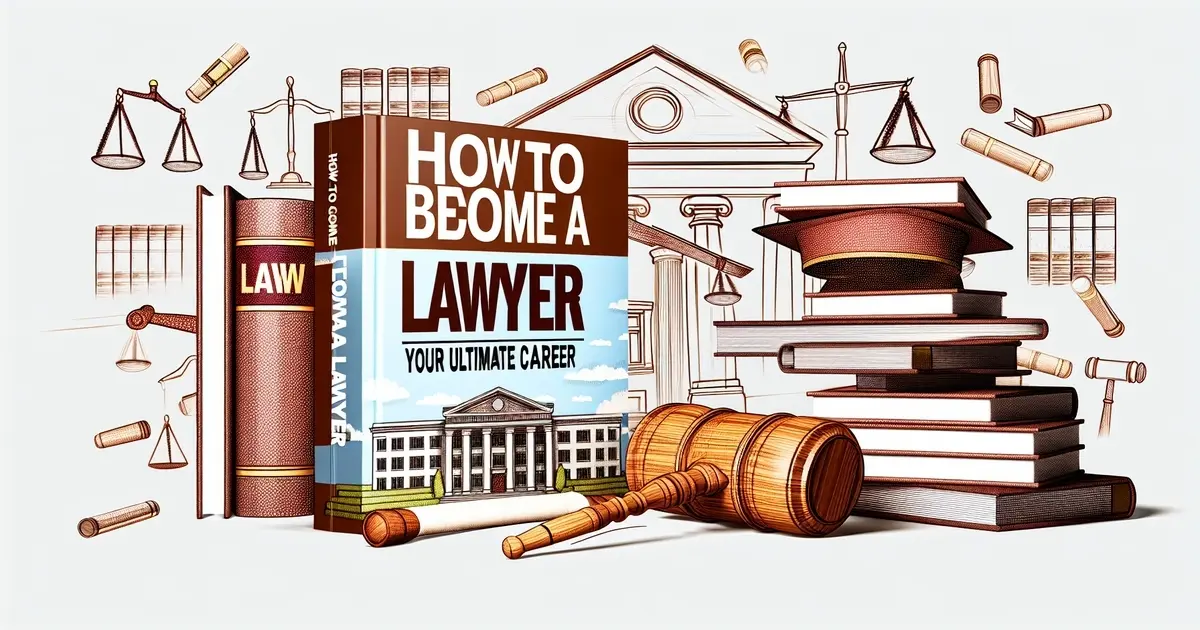How Much Can Lawyers Negotiate Medical Bills? Expert Insights
Navigating the labyrinth of medical bills and care costs post-treatment can feel like wrestling a bear: daunting, exhausting, and sometimes downright scary, especially when considering the money and rate of expenses. Yet, there's a glimmer of hope in this financial tangle - lawyers specializing in negotiating medical bills, court settlements, and care costs. While you might be drowning in pages of charges from your medical provider for medical treatment that seems written in an alien script, these legal pros are fluent in the language of healthcare finance. They can navigate the complexities of PIP money. They wield their expertise as a shield and a strategic weapon to potentially slash your medical debts down to size, using care, money, pip, and judgment. But how much muscle do these legal champions have?
Table Of Contents
The Role of Lawyers in Negotiating Medical Bills
Legal Intermediaries
Lawyers serve as crucial intermediaries between patients and medical care providers. They understand the complexities of healthcare billing. This knowledge is invaluable for clients facing high medical care bills.
An experienced attorney can communicate effectively with hospitals and clinics on behalf of their client regarding medical care. They ensure that all charges are legitimate and fair. Often, they spot errors or inflated costs in medical care that a patient might miss.
Expertise Advantage
The legal expertise of attorneys provides a significant advantage in negotiations. They know how to read and interpret medical bills and care accurately. This skill is essential for identifying inaccuracies or unfair charges in medical care billing.
Attorneys use their understanding of litigation to negotiate better deals with healthcare providers or debt collectors in the medical field. Their goal is always to reduce the financial burden of medical care on their client as much as possible.
Pros:
- Better understanding of billable charges
- Ability to identify inaccuracies
- Skilled in negotiation tactics
Cons:
- Legal fees may apply
- Not all cases may result in reduced bills
Successful Outcomes
A successful negotiation by an attorney can lead to significantly lower patient medical bills. In some cases, lawyers cut down the amount owed for medical care by thousands of dollars.
Success stories often involve challenging unreasonable charges head-on through careful analysis and negotiation strategies only known to seasoned attorneys.
For many clients, having a lawyer handle their medical bill disputes gives them peace of mind during stressful times.
Understanding the Legal Context of Medical Bill Negotiation
Legal Limits
Specific laws and regulations set boundaries on negotiations for medical bills. Not all charges are flexible. For instance, fixed fees by government healthcare programs can only be changed sometimes.
Lawyers are familiar with these legal constraints. They know which parts of a medical care bill might be negotiable. This knowledge is crucial for setting realistic expectations.
Rights Knowledge
Understanding patient rights is critical in negotiation. Lawyers use this to argue for lower bills effectively.
Patients often don't know their rights or the intricacies of the medical care billing process. A lawyer can leverage this knowledge to find errors or overcharges in medical bills, leading to successful negotiations.
Framework Insight
The legal framework around healthcare billing is complex but navigable with expertise. Lawyers understand how to navigate these waters.
They look at the agreement between the hospital and insurance companies regarding medical care, finding areas where costs could be reduced without breaking any laws or agreements.
Examples:
- Finding coding errors that led to higher charges
- Identifying duplicate charges on a patient’s bill
- Negotiating payment plans that are more manageable for patients without affecting the care provider’s bottom line significantly
These actions show how lawyers negotiate within legal limits while advocating for their clients' financial interests.

Factors Influencing the Ability to Reduce Medical Bills
Insurance Coverage
Insurance plays a significant role in negotiating medical bills. Different policies offer various levels of coverage. Some might cover a large part of your bill, while others less so.
Knowing your policy details is crucial. It helps you understand what costs you're facing and where there's room for negotiation. Lawyers can use this knowledge to argue for lower charges based on what insurance doesn't cover.
Medical Complexity
The nature of your medical treatment affects bill negotiations, too. Simple procedures are generally easier to negotiate than complex surgeries.
Why? Because complex treatments have more variable costs associated with them. This includes everything from the operating room time to specific equipment used. Lawyers often highlight these variables when negotiating, seeking reductions wherever possible.
Provider Policies
Not all healthcare providers are the same. Some may have strict no-discount policies, while others are more flexible.
Before starting negotiations, understanding a provider’s stance on debt forgiveness or discounts is vital. Your lawyer can research this beforehand, preparing an approach that aligns with the provider's known practices.
Strategies Lawyers Use to Negotiate Lower Medical Expenses
Legal Precedents
Lawyers often start by looking into legal precedents. They find past cases similar to yours. These cases show how charges were reduced before. It's like having a roadmap for negotiation.
They present these precedents to the medical providers. This shows that reductions are not just possible but have happened before. It puts pressure on providers to consider lowering the bills.
Billing Errors
Next, lawyers dig into your billing statements with a fine-tooth comb. They're hunting for any errors or overcharges. You'd be surprised how often mistakes happen.
Once they spot these errors, they use them as leverage in negotiations. It's hard for providers to justify overcharges when they're pointed out.
Payment Plans
Finally, negotiating payment plans is critical. Lawyers try to find a middle ground that benefits you and the provider.
- They aim for reduced total costs.
- They seek flexible payment terms that fit your budget.
This approach keeps everyone happy while reducing your financial burden.
Managing Medical Expenses After an Accident
Urgent Bills First
Prioritizing medical bills is crucial. Not all bills are due at the same time. Some need immediate attention to avoid extra charges or penalties. Identify which ones are urgent and tackle them first.
Paying urgent medical expenses on time prevents late fees. It also shows good faith in managing your obligations, which can be beneficial later during negotiations for bill reductions or waivers.
Reduction Options
Exploring options for bill reduction is a smart move. Many must realize that certain accident circumstances might qualify them for reduced costs or waivers. Speak with your healthcare provider about any financial assistance programs they offer.
Sometimes, explaining your specific situation can lead to unexpected help from medical providers. They might offer a payment plan that fits your budget better or reduce the amount owed based on hardship considerations.
Insurance Coordination
Working closely with insurance companies is critical. If you have health insurance, determine how much of your care they cover directly. This direct billing arrangement can significantly lessen the stress of handling large sums of money out-of-pocket.
For those uninsured or facing gaps in coverage, understanding what compensation might be available through other means becomes important—like personal injury protection (PIP) benefits if applicable in your state.
The Impact of Negotiated Medical Bills on Settlement Amounts
Favorable Terms
Negotiating medical bills can significantly affect the outcome of settlement discussions. Lawyers who know how much they can negotiate medical bills down often secure more favorable terms for their clients. Lower expenses mean a more significant portion of the settlement goes directly to the client, not to cover hospital or treatment costs.
For instance, if a lawyer reduces a $10,000 hospital bill by 30%, this saves $3,000. That's $3,000 more in the client’s pocket or available for other essential needs. It demonstrates how effective negotiation directly benefits those recovering from accidents.
Strengthened Claims
Accurate documentation of negotiations is crucial. It shows that efforts were made to minimize expenses and manage them responsibly. When lawyers present these documented efforts during settlement discussions, it strengthens compensation claims.
This approach signals to all parties involved that the claimant has legitimate interests and is seeking an equitable distribution of funds. As such, they have accurately documented negotiations to support why a claimant deserves a higher settlement amount.
Reduced Out-of-Pocket Expenses
One key advantage of negotiating medical bills is minimizing out-of-pocket expenses for accident victims. By reducing these costs:
- Victims preserve more of their settlements.
- They face less financial stress during recovery.
Consider someone with an initial set of medical bills totaling $20,000 after an accident. If their lawyer negotiates these down by 25%, they save $5,000 - money that doesn't have to come from savings or add to debt burdens.
Reducing out-of-pocket costs means maximizing the value received from settlements while ensuring victims aren’t left struggling financially post-recovery.
Documenting Medical Expenses for Injury Claims
Detailed Records
Keeping detailed records of all medical treatments is crucial. It's the first step to ensure you're prepared. You should log every visit, treatment, and medication. This includes dates, providers' names, and costs.
Having a comprehensive list helps. It proves your expenses are natural and necessary. Without this proof, arguing for compensation or bill adjustments is easier.
Organizing Documentation
Next is organizing these records well. Think of it as building a case that supports your claim's legitimacy. Include invoices, receipts, and insurance statements in your files.
Also, showing how each expense links to your injury is essential. This might involve getting notes from doctors or witnesses who can vouch for the necessity of the treatments received.
Negotiated Adjustments
Finally, ensure any negotiated adjustments by injury attorneys are adequately reflected in your claim documents. Lawyers often reduce what you owe significantly through negotiation with healthcare providers due to their expertise in understanding liability issues.
These adjusted amounts must be accurately documented, too. They show not only that you’ve been proactive about managing costs but also provide a clear picture of the financial impact the injury has had on you after negotiations.

Handling Excessive Medical Bills Post-Accident
Bill Assessment
After an accident, reviewing your medical bills is crucial. It's important to check each charge for accuracy. Mistakes can happen. You might be billed for services you didn't receive.
Ask for an itemized bill from the hospital. This breaks down every charge. Look through it carefully. Question anything that seems wrong.
Legal Advice
Sometimes, you'll find charges that need clarification or seem too high. That's when a lawyer can help. They know how much lawyers can negotiate medical bills.
Lawyers have experience with these situations. They can spot unfair charges easily and argue against them on your behalf.
Having legal support makes disputing bills less stressful for you.
Financial Assistance
Hospitals often have programs to help people struggling to pay their bills. These are called hardship programs or financial assistance options. Don’t hesitate to ask about them.
To apply, you’ll likely need to provide some financial information. The hospital wants to see if you genuinely need help.
This could lead to reduced charges or a more manageable payment plan.
The Concept of Subrogation in Medical Billing
Understanding Subrogation
Subrogation plays a vital role in medical billing, especially after an accident. It involves an insurance company stepping into the shoes of its insured to recover costs from the party at fault. This process can directly impact how much lawyers can negotiate medical bills for their clients.
When dealing with subrogation, understanding its basics is crucial. Essentially, it allows insurers to recoup expenses paid on behalf of policyholders. For those recovering from accidents, part of their settlement might go towards reimbursing the insurance company.
Navigating through these waters requires knowledge and strategy. Lawyers must recognize when subrogation rights exist and plan accordingly. Failure to do so could result in unexpected financial losses for clients burdened by medical bills.
Complex Claims
Insurance claims involving subrogation rights add another layer of complexity to negotiations. These situations often involve multiple parties and intricate legal principles determining who pays what.
Lawyers face a challenging task here. They must sift through various policies and regulations to effectively protect their client's interests. This includes ensuring that any reimbursement claims by insurers are fair and within legal bounds.
At times, disputes arise over how much should be repaid or whether subrogation applies. Skilled negotiation becomes essential here as attorneys work to minimize their client's financial responsibility without violating any agreements made with insurers.
Client Protection
Protecting clients' interests is paramount when insurers seek recovery from settlement amounts via subrogation rights. Lawyers play a critical role in ensuring that settlements reflect the immediate and long-term needs of those they represent.
This involves careful calculation and negotiation tactics to reduce overall client liabilities while respecting valid claims by insurance companies. For example, negotiating payment plans or reductions on repayable amounts can significantly alleviate financial pressures on individuals recovering from accidents.
Clear communication about potential outcomes helps manage expectations throughout this complex process.
Final Remarks
Navigating the maze of medical bills post-accident feels like a Herculean task, but you're not alone. Lawyers are your knights in shining armor, ready to joust with those towering stacks of bills. They have the legal know-how, the negotiation tactics, and a keen eye for the fine print that can make all the difference in slashing those hefty sums down to size. Whether it's through understanding the nitty-gritty of subrogation or wielding strategies to minimize expenses, having a legal eagle by your side can transform a financial nightmare into a manageable ordeal.
So, what's your next move? If drowning in medical bills after an accident has you feeling like you're at the end of your rope, it's time to reach out for that lifeline. Keep the numbers from keeping you up at night. Contact a lawyer negotiating medical bills and watch them work their magic. Your wallet will thank you.
Frequently Asked Questions
Can lawyers help reduce medical bills?
Absolutely! Lawyers are skilled negotiators who can work with healthcare providers to lower your medical expenses, often significantly. They know the legal landscape and can leverage it in your favor.
What factors affect an experienced injury attorney's ability to negotiate medical bills with debt collectors and lawsuits?
Several factors come into play, including the details of your case, the clarity of fault in an accident, and the healthcare provider's policies. Your lawyer will navigate these waters for you.
What strategies do experienced injury attorneys use to negotiate lower medical expenses or deal with lawsuits?
Lawyers have a toolkit of strategies ranging from disputing inaccuracies in billing to negotiating bulk payment discounts or hardship reductions. It’s like they’re haggling at a market but with legal expertise on their side.
How does negotiating my medical bills impact my compensation, money, verdict, and court settlement amount?
Negotiating lower medical bills can lead to a higher net settlement amount. Think of it as making sure more money is in your pocket rather than being spent on inflated medical costs.
Why is documenting my medical expenses important for injury claims to ensure compensation, cover care costs, and potentially receive more money from the court?
Documenting every penny spent on your recovery creates a clear picture of what you’ve endured financially. It’s like keeping receipts; without them, proving what you’ve spent is tough!
How do lawyers handle excessive post-accident medical bills?
They roll up their sleeves and get to business by challenging unreasonable charges and seeking out errors or overcharges. Imagine them as financial detectives looking out for your wallet.
What is subrogation about negotiated medical bills?
Subrogation might sound complicated, but it just means that if insurance pays for some of your costs initially, they may try to recoup those funds later from any settlements awarded—your lawyer keeps this balance fair.
Related Post
What Does a Lawyer Wear?
Did you know that 75% of people form their first impression of a lawyer based on appearance, impacting judges and the justice system?
Read MoreWhat Happens If a Lawyer Loses a Case
Have you ever wondered about the ripple effects when a lawyer or attorney doesn't win in court, especially under a contingency fee arrangement or contingent fee with the jury involved?
Read MoreWhat Are the Highest Paid Lawyers?
Have you ever wondered why some lawyers in their legal career, specifically big law investors, drive luxury cars while others seem to scrape by with their jobs and money?
Read MoreHow Do Pro Bono Lawyers Get Paid?
Have you ever wondered how lawyers, often working for nonprofit organizations or on contingency fees, keep the lights on while providing free legal services for disability cases?
Read MoreHow Long Can a Lawyer Hold Your Settlement Check?
Have you ever wondered why getting your hands on your settlement check feels like forever, with money sitting in trust accounts, balancing client trust?
Read MoreHow to Become a Lawyer
Did you know that there are over 1.3 million active attorneys in the United States alone, including law students from law schools and those in law firms practicing law?
Read More






